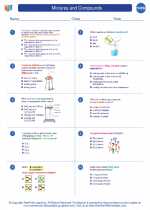Cultural Anthropology
Cultural anthropology is a branch of anthropology focused on the study of human cultures and societies. It explores the diversity of human behavior, beliefs, and customs across different societies and time periods.
Key Concepts in Cultural Anthropology
- Culture: The learned and shared behaviors, beliefs, and traditions of a particular group of people.
- Ethnography: The systematic study and documentation of cultures through fieldwork and participant observation.
- Cultural Relativism: The principle that a person's beliefs and behaviors should be understood in the context of their own culture, rather than judged by the standards of another culture.
- Kinship: The system of social relationships that constitute family ties and connections between individuals in a society.
- Language and Communication: The role of language in shaping cultural practices and the ways in which people communicate within a society.
- Symbolism and Ritual: The use of symbols and ritual practices to communicate and reinforce cultural meanings and values.
Methods of Cultural Anthropology
- Participant Observation: Immersing oneself in a culture to observe and understand social practices and behaviors.
- Interviews and Surveys: Collecting information through direct interactions with individuals within a cultural group.
- Comparative Analysis: Analyzing similarities and differences across cultures to understand universal and unique cultural patterns.
- Archival Research: Examining historical documents and records to understand cultural change over time.
Key Theories in Cultural Anthropology
- Cultural Materialism: The theory that the material conditions of society, such as technology and economic systems, shape cultural beliefs and practices.
- Structural Functionalism: The idea that cultural practices serve specific functions in maintaining social order and cohesion within a society.
- Symbolic Anthropology: Emphasizes the role of symbols and meanings in shaping cultural practices and social life.
- Postmodernism: Critically examines power dynamics, representation, and the fluid nature of cultural identities.
Applications of Cultural Anthropology
Cultural anthropology has practical applications in various fields, including:
- Social Work
- International Development
- Business and Marketing
- Public Policy and Advocacy
- Education and Cross-Cultural Communication
Study Tips
To effectively study cultural anthropology, consider the following tips:
- Engage with ethnographic texts and case studies to understand real-world applications of anthropological concepts.
- Develop strong critical thinking skills to analyze and interpret cultural practices and beliefs.
- Practice writing about cultural phenomena and theories to strengthen your communication skills.
- Engage in discussions and debates about cultural diversity and social issues to broaden your perspectives.
- Seek out opportunities for cross-cultural experiences and interactions to apply anthropological concepts in real-life settings.
◂Chemistry Worksheets and Study Guides High School. Mixtures and Compounds
Worksheet/Answer key Mixtures and Compounds
Mixtures and Compounds  Worksheet/Answer key
Worksheet/Answer key Mixtures and Compounds
Mixtures and Compounds  Worksheet/Answer key
Worksheet/Answer key Mixtures and Compounds
Mixtures and Compounds 

 Worksheet/Answer key
Worksheet/Answer key
 Worksheet/Answer key
Worksheet/Answer key

The resources above cover the following skills:
Chemistry II
Properties of Matter
Develop and use models to explain the differences between chemical compounds using patterns as a method for identification.
Use mathematical representations to quantify matter through the analysis of patterns in chemical compounds.